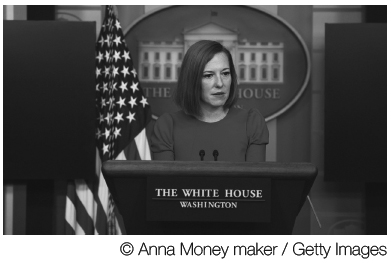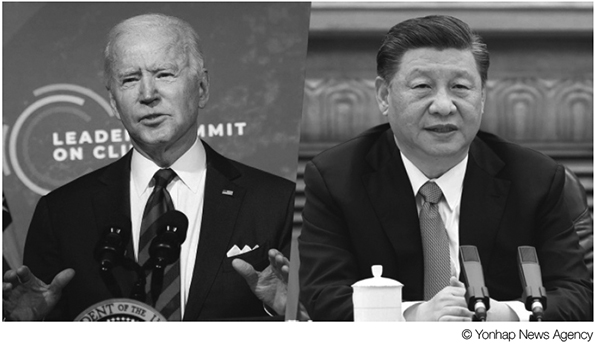
Last year, December 6th, the United States announced a diplomatic boycott of the Beijing Olympics because China violates the human rights of the Uighur minority. On the other hand, there were suspicions that the US is trying to contain China diplomatically by using human rights as a pretext. Professor Kim Jih-un of the Department of Political Science and Diplomacy at Chungnam National University explained why the US declared a diplomatic boycott as ‘value’ diplomacy.
Before going into the boycott issue, we should ask: How does the US feel about emerging China? Professor Kim said, “The United States has three attitudes toward China’s rise: Anxiety, dissatisfaction and distrust.” Because the US can’t trust China, it defined China as a ‘Strategic competitor’ and put Pan-governmental and omnidirectional pressure on China.
Then, why did the US declare the diplomacy boycott of the 2022 Winter Olympics? Professor Kim explained the boycott in terms of value diplomacy. He said, “In international relations where ‘national interest’ dominates, the United States has criticized China’s undemocratic system and anti-human rights behavior through ‘value diplomacy’ that emphasizes ‘value.’ That is how they justify not sending an official delegation to Beijing.”
However, Professor Kim mentioned that the attitude of the United States is swayed by diplomatic interests. He said “The attitude of the United States is inconsistent, so it could be criticized. For example, to gain China’s acquiescence in Middle East policy, the United States defined an independent Xinjiang Uighur organization (the East Turkistan Islamic Movement) as a terrorist group in 2002. It was not until 2020 that the United States excluded Xinjiang independence groups from the terrorist list,” referring to a contrary attitude to the past.
Moreover, he also described the right direction in which values should be used. “While pursuing universal values, they shouldn’t be used as political and strategic means. We should be careful since it may intensify conflict and lead to the so-called New Cold War.” It means that values should never be used as a means to further the national interest of a country.
What should be the attitude that Korea should take in a situation where the US-China conflict continues? Prof. Kim recommended democratic values and flexible diplomatic attitudes as the position that Korea should take. He said “At the end of last year, South Korea, along with 110 other countries, participated in the Democratic Summit hosted by President Biden of the United States. In June of last year, he also signed the ‘G7 Open Society Statement,’ which emphasized the protection of democratic values. (For example, people may consider the May 18th pro-democracy movement and the candlelight vigil that led to the impeachment of the president, as instances where Korea successfully perpetuated democratic values.) Korea, which has built democracy in modern history, should continue to strive to realize these values in the international community.”
He also cited the flexibility of diplomatic attitudes as a reason for South Korea not diplomatically boycotting the Beijing Olympics. “At the same time, we need the flexibility to pursue the national interest through diplomacy. The reason why South Korea does not diplomatically boycott the Beijing Olympics can be seen as a decision based on sovereignty and pragmatic and flexible diplomacy. In addition, since China sent a deputy prime minister-level delegation to the Pyeongchang Olympics, we also dispatched a corresponding delegation because it seems to fit the universal principle of ‘reciprocal benefit and equality between countries.” He said that it is important for Korea to become diplomatically flexible for the sake of the national interest as in this case.
Ahead of the Beijing Olympics, the United States showed a diplomatic check-in with China by stating ‘value.’ However, the US has been criticized for not being consistent when using its ‘values’ for diplomacy by showing a different attitude from the past. Furthermore, the US-China conflict affects South Korea in more fundamental ways than just the Olympics. Korea, which is diplomatically in a sandwich situation, will have to keep a close eye on both the US and China, but within that precarious situation, it will have to deal with diplomacy democratically and flexibly.
By Jeong Yeon-ju
yd0725@cbnu.ac.kr
By Park Su-min
psm0129@cbnu.ac.kr


 All
All Society & Global
Society & Global






 Jeong Yeon-ju & Park Su-min
Jeong Yeon-ju & Park Su-min











